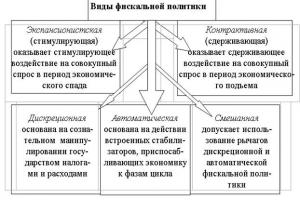Writer, speaker and coach Piush Kamal shares his ways to overcome self-deception
Photo: Lionesse.comLying is hard because you have to deal with the fear of getting caught. Therefore, most of us are afraid to openly lie to others. But we are a master at deceiving ourselves.
People are susceptible to self-deception because they are emotionally attached to their beliefs. They begin to identify with their set of beliefs. A person deceives himself by believing something untrue in order to better convince others of it.
Definition of self-deception
In psychology, self-deception is considered one of the popular escape methods that people use to avoid feeling guilty and to allow themselves to escape from something they do not want to face. Of course, people do not intentionally deceive themselves, but their subconscious minds come up with such tricks to protect their psychological well-being.
Busy person syndrome is one of the most common examples of self-deception.
A person who cannot achieve success in a certain field may decide to escape it by pretending to be busy. Some workaholics become this way because they were unable to establish a social life and decided to isolate themselves using this brilliant method of self-deception.
You need to be very observant to notice this pathological behavior in yourself. We lie about a variety of things, from the type of diet we prefer, to the amount of exercise we do, and even factual details about our own height and weight.
We are more likely to believe the stories we tell ourselves (both true and false) than the beliefs of others. What we like to believe is often accepted as truth. And before we know it, we're creating a wonderful narrative about those beliefs—and deceiving ourselves in the process.
Escape route...
There are times when people develop the habit of self-deception as a way to cope with problems and challenges.
An example of such self-deception would be travel. We all love to travel, but some people decide to go on a trip when something goes wrong in their personal or professional life. These people may not have been able to achieve success or establish a good relationship with those around them, and that is why they decided to run away. A person may lie to himself, claiming that he loves to travel, but in fact he loves to escape.
Many people have a way of "fooling their inner eye" into believing that they are more successful or attractive than they actually are. Even though I may like to think otherwise, I am no exception here.
This could probably explain why we see so many lovers of photo editing apps these days. People are willing to deceive the world about their appearance, income, passion or vacation without a shadow of a doubt.
University of Michigan social psychologist David Dunning, famous for the Dunning-Kruger effect, believes that “gullibility is not a new phenomenon. But its effects are getting worse in the era social networks when false information spreads quickly. We live in a world overflowing with information and misinformation.”
…To avoid confronting difficult situations
There are people who deceive themselves so as not to face difficult situations. Avoiding a chronic problem and convincing yourself that you will solve it in the future is a common disease of procrastination.
For some people, self-deception becomes a habit that gets out of control and creates the basis for more lies. Because The best way convincing others that we believe something is actually believing it.
- Wear the mask long enough and it will become your face.
- Play a role long enough and you will actually become what you pretend to be.
- Pretend for a long time that something is true, and you can believe it yourself.
Psychological Default Responses
We lie to ourselves because we are not strong enough to admit that we are insecure and vulnerable. We try not to face the inconvenient realities of life. We're just not ready to face them yet.
When I began my journey as a writer who works at the intersection of cognitive psychology, neuroscience, and philosophy, I was filled with doubts. I was not ready to take criticism well. It was difficult for me to appreciate the importance feedback. As a result, it was difficult to pass these initial phases complete ambiguity.
These are the psychological default responses that protect our sense of self from complex information that can harm us.
Negation
- “I don’t eat too much, even though I’m overweight.”
- “I am not dependent on cigarettes, although my daily consumption exceeds double digits.”
- "I'm not an alcoholic, although I drink daily."
As you can see, all these statements are nothing more than a desperate attempt to deceive oneself by denying reality. Our evolutionary defense mechanism ensures that we perceive these deceptive messages as “part of us”, so it becomes difficult to find fault with them.
Rationalization
- "I wouldn't be angry with him if he kept his promise."
- “I would have a more fulfilling relationship if I had a more sensitive and emotionally stable partner.”
- “I would have pursued my passion for writing if I had more time.”
This leads to destructive behavior. The problem with this approach is that your choices are made based on deceptive messages from your brain rather than your rational and true self.
Forecasts
- “You never listen to me, you don’t care about our relationship anymore.”
- "You're too ambitious to have your own family."
- "You're too invested in your friends to value other relationships."
A prediction is how your brain makes you believe in an alternate reality. He will continue to look for opportunities to blame others. But once we accept that the problem lies with us and not with others, we have enough courage to admit who we really are and give ourselves the opportunity to make inner transformation.
How to resist self-deception
I know that discovering that you are deceiving yourself may not be very pleasant. Here's how I dealt with it when I first realized my problem, and what I've learned since then.
Once I changed my focus from writer to speaker, I suddenly found myself in completely unfamiliar territory. And this territory turned out to be too scary for a newbie like me. Among my audience were mainly schoolchildren and parents shaking over them. The former are notorious for their lack of attention, the latter for their fears of the unknown. I defined a task for myself and went towards it.
Although I assured the director that her feedback was invaluable to me, deep down I was not brave enough to even accept it.
First, there was a feeling of denial. Primarily because of the hard work involved in preparing for the performance, which she was unaware of. Then rationalization came into play. Perhaps this portion of the students was not mature enough to appreciate the subtle nuances of my words. Perhaps the parents were not brave enough to accept difficult thoughts. And sometimes even leaders cannot appreciate such thoughts due to their prejudices.
This was nothing more than my evolutionary defense mechanism, protecting my side at all costs. When I began to try to objectively analyze these automatic reactions, I stopped myself from falling into the trap of self-deception.
These three steps helped me gain more clarity:
Pause → Check in with yourself → Look into the face of fear.
Here's how I use them, and you can do the same.
1. Pause
As soon as emotions - love, shame, revenge or guilt - manifest themselves physiologically, just pause. When you hesitate to generalize, just pause. Whenever you notice any discrepancy between your values and actions, simply pause.
Take a deep breath and stop thinking.
2. Check yourself
If you have a strong reaction to certain situations, use the pause to ask:
“What is this reaction trying to tell me?”
Once we acknowledge our limitations and uncertainties, we become aware of choices, which in turn make us more responsible for the consequences of our own actions.
3. Facing your fears
If you are avoiding something or are afraid to experience your true worth, then it is time to become brave and face what you have been running away from. What do you need to take? Once you understand this, look at it with courage. You will become much more confident in yourself.
The magic of acceptance
At the core is your willingness to accept things as they are, not as you want them to be. But accepting reality is easy when you like what you see, but you have to accept it even if you don't like it - especially when you don't. And please stop trying to force the world to conform to your will.
Perhaps you have no talent for negotiations? Are you not a natural leader or an athlete? You must be brave to accept these truths and accept the consequences.
Parting Thoughts
We often understand other people much better than we understand ourselves (which is why we are so often disappointed in others, but rarely in ourselves). Therefore, the best option is to find a friend or partner who you can rely on and who can tell you the hard but honest truth.
Even then, your brain will do its best to soften the facts it doesn't like. Over time, however, you will learn to take other people's judgments seriously.
So accept reality, and accept it radically. Especially the parts you don't like. On this moment it may be painful, but it needs to be done. This will bear fruit later.
You may have to face your fair share of failures, and it's okay to make some mistakes now and then. The main thing is to find out why this happened and solve the problem at its root. Because, unlike wine, problems don't get better with age.
Useful article? Subscribe to our channel in Zen and follow the best updates and discussions on Ideonomics
","nextFontIcon":" ")" data-theiapostslider-onchangeslide=""""/>
August 6, 2018 
Lying is ugly. Our parents teach us this truth from childhood. Indeed, deception is always offensive and unpleasant. However, the statistics are inexorable: the average adult tells lies about 50 times a day. But if people understand that lying doesn’t make them happy at all, what makes them lie? And most importantly, how to stop lying?
The first thing to do is to understand the motives for such behavior. People lie for various reasons. Most often they just want to seem better than they really are. Attribute to yourself actions that you did not do, or merits that actually do not exist. Also, deception is often associated with the desire to relieve oneself of responsibility or justify some of one’s actions. Many people prefer to lie so as not to offend the other person. Deception, in essence, is the habit of not telling others, deliberately hiding certain facts. In some cases, the abuse of lies reaches such proportions that independent decision problems become impossible, and only the advice of a psychologist can help. There are many support groups where people with similar problems meet. It is always easier to face difficulties together, and such groups provide serious moral support and an incentive to change for the better.
How to solve this problem?
Having determined the main reasons why a person lies, you can begin to solve the problem. It should be remembered that lying is as bad a habit as, for example, smoking. Therefore, the rejection of it must be decisive and unambiguous. Make a promise to yourself not to lie to people. This will be difficult at first, but over time the benefits of living without lying will become clear. You will notice that you no longer need to remember the details of the lies told, and those around you will begin to treat you with more respect. In situations where it is difficult for you to tell the truth, it is better to remain silent or honestly say that at the moment you are not ready to talk.

Deception from loved ones can be especially offensive. When a man lies to the woman he loves in order, for example, to appear better, stronger or richer, this can turn into a big problem. Of course, all young people want to impress their loved ones best experience, however, lying, in this case, is absolutely unacceptable. The best solution in this situation is to simply be yourself, while striving for the qualities that you would like to have.

The most important rule to follow is not to lie to yourself. We must remember that a person who is honest with himself is devoid of internal conflicts and contradictions, and, therefore, is in greater harmony with the world around him. You shouldn’t lie to your loved one either, because he is your support and support. People you love are accepted and loved despite their flaws. The desire to appear better than you really are means the desire to be not yourself, but someone else.

If lying to loved ones has become your habit, do not be surprised that regaining their trust will not be easy. At the first difficulties, you must not give up, but again and again win the trust that has been lost in you. Be prepared for the fact that honesty on your part will not always be perceived as you expect. Many people really find it easier to hear sweet lies than the bitter truth. In such situations, it is better to say honest things to your face with maximum correctness. However, even if the truth may hurt, it is in any case better than constant pretense and lies on your part.
Teenage problems with parents
Children and teenagers often tell lies to their parents. As a rule, this comes from a reluctance to worry them, as well as mistrust. In this case, parents need to work hard to build a sincere, trusting relationship with their child. If the habit of lying and not saying enough will develop even further childhood, it will be especially difficult to fight it later. Do not scold your child for mistakes, try to understand the motives of his actions. After all, something forces him to tell a lie, which means there are good reasons for this. Be sincerely interested in his affairs and problems. Find out more about his social circle, invite his friends to your home. Organize proper leisure time. Establishing contact will not be easy at first, but once you do, you will see how open and honest your child can be.

Remember that honesty is the best policy. People who always tell the truth are trusted and respected. However, if giving up lying is very difficult, do not be too hard on yourself. There are no ideal people. Just be yourself, and the habit of lying will disappear over time due to its uselessness. However, if you feel that you cannot cope with the problem on your own, there is nothing wrong with contacting a specialist. With the help of a psychologist, it will be much easier and faster to get rid of the harmful habit of lying.
Each of us has to lie in life. Our lies can be quite harmless, for example, in childhood we could tell teachers that we were late for class because we were moving a column of grandmothers across the road or, together with firefighters, carrying women and children out of a fire. Later we lied to our parents, telling them that we wouldn’t come home to spend the night because it was already late, the buses weren’t running, and we were afraid of the dark. Such a lie, of course, cannot be welcomed or justified either, but much more dangerous is the lie that becomes a habit.
If you suddenly notice that all your friends have turned their backs on you, relationships with colleagues and bosses are not going well, your personal life also leaves much to be desired, and the reason for this is that you are constantly deceiving everyone, then the moment has come when you need to stop and find out about how to stop lying.
In order to get rid of this habit, you need to find out what causes it.
Most often we start lying out of fear.
We are afraid of responsibility and because of this we prefer to lie or not talk about our own actions. Most often this can be observed among children or adolescents, but this does not mean that adults do not sin with this. In order to put an end to the web of lies that has entangled you, you must convince yourself, first of all, that everything secret is becoming clear, and, sooner or later, you will still have to bear responsibility. So why lie? Isn't it better to admit everything right away and move on with a normal life?
Evaluate the people around you. Among them will be pathological liars. Do you want to communicate closely with them, knowing that they will always deceive you in any matter, even if it concerns some unimportant little thing? Of course not! This means that you should not lie to people. Remember the golden rule which states that you should treat all people exactly the same way you want them to treat you.
If you are not planning to become a storyteller or a science fiction writer, and you want to have a lot of people around you who value and trust you, but don’t know how to stop lying, you need to use a few tips.
Tip 1.
Admit to yourself that the problem of constant lying is relevant for you, that you tend to tell lies, and this often becomes the cause of many troubles in life. Realize this and decide to get rid of lies in your life once and for all. At the same time, it is very important not to go to the other extreme - you may begin to blame yourself for all possible sins, which will have an extremely negative impact on your internal self-esteem. You may not be perfect, but there are no such thing as people, and the fact that you yourself decided to take the path of correction already says a lot.
Tip 2.
Show courage and admit your lies to the people who suffered from them. Try to convey to them that when you did yours, you did not pursue any selfish goals and did not want to make them look like fools. Tell them that you have decided to change yourself and promise them never to lie to them again. Some of the victims of your deception will simply smile back at you, making a joke in their own language. Someone will forever remove you from their social circle. Deal with it, because no one is to blame for this but you.
Tip 3.
Find in yourself those traits that will allow you to become a popular member of your company without resorting to lying, inventing fables or exaggerating your abilities, capabilities and importance. Each person is interesting in his own way, and in order to acquire a relationship, a person does not need to pretend to be someone with money, power or connections. Moreover, those who are only interested in your social and financial status in friendship are unlikely to be good comrades.
Tip 4.
In the event that you have already tried all the above methods, but the question is: how to stop lying is still open to you, there is one wonderful way for you to direct your unbridled imagination in a peaceful direction. Try writing stories. Maybe you have a talented science fiction writer hidden within you. If this is so, then all those who recently accused you of lying will very soon begin to talk about you and proudly tell everyone they know about how you once played them.
I wish you success!
One of the main signs that a person is lying to himself is the habit of agreeing with people in everything. Such people feel obligated to say “yes” to any requests or suggestions from others. However, such behavior is self-deception. Agreeing with others on everything, a person sometimes takes on responsibilities that he can never fulfill. In addition, the habit of agreeing on everything leads to the fact that a person begins to be used; others see his inability to refuse anything. Learn to say no when necessary. This way you will let others know what you really think, and you will also stop deceiving yourself.







